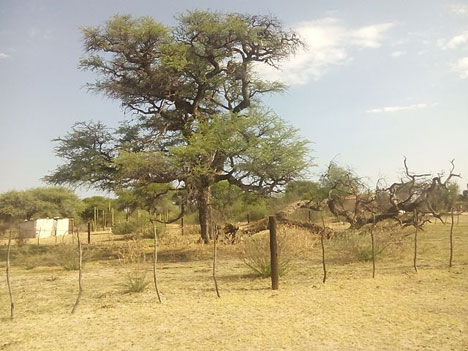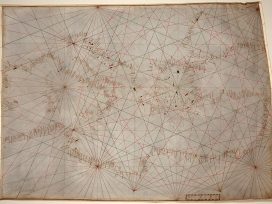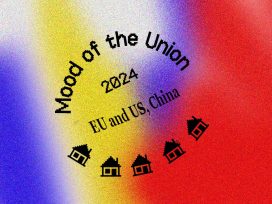We were well prepared by the authorities. We felt we were among ourselves. Never again did we think even for a moment that we would be hampered or punished. Ever since the plane crash, the radio had hammered at us, “The foreigners are departing. They had material proof of what we are going to do and they are leaving Kigali. This time around they are showing no interest in the fate of the Tutsis”. We witnessed that flight of the armoured cars along the road with our own eyes. Our ears no longer heard murmurs of reproach. For the first time ever, we did not feel we were under the frowning supervision of whites. Other encouragements followed that assured us of unchecked freedom to complete the task. So we thought, Good, it’s true, the blue helmets did nothing in Nyamata except an about-face to leave us alone. Why would they come back before it’s all over? At the signal, off we went.
(Adalbert, a killer in the Rwandan genocide)
This article focuses on certain elements of the European legacy in Africa that were crucial in framing the turn of the twenty-first century and marking the “western” picture of the world during that period. In addition, these elements were major factors in enabling the perpetration of atrocities on the African continent on a scale that invites comparison with the Holocaust – that is, the first and the last genocides of the twentieth century: the Herero and Namaqua genocide at the beginning of the century in what is now modern-day Namibia, and the Rwandan genocide at its end (with all its consequences and potential lessons). This paper also discusses the question of the African legacy in Europe, especially the contemporary form of politics and power that is strongly marked by the experience of imperialism as being central to the “western” worldview, and the question of how this is to be explained.

A tree in Otjinene, Namibia, where many Herero people are said to have been hanged. Photo: Bobbyshabangu. Source: Wikimedia
The 1994 Rwandan genocide was not a mere repetition or even an approximation of the European Holocaust, just as the Herero genocide (1904-8) was not simply its forerunner, although all three instances have many points in common. There is a “qualitative” difference and a leap in the criminal “nature” of the Rwandan genocide, in the sense of something radically new (not only in view of previous genocides, but also of the Holocaust), which is why a better understanding of it could also shed light on certain more recent events, including so-called “humanitarian interventions” and the spectre of the “war on terror”. This contribution draws on some recent historical studies, the analysis of imperialism, race and bureaucracy in Hannah Arendt’s work, and authors who “methodologically” base their research on the political institutions of Sub-Saharan Africa and the phenomenon of genocide on the Arendtian analysis of totalitarianism, such as Mahmood Mamdani.
The body of the article discusses the organization of colonial and postcolonial bureaucratic apparatuses and their connection with “race”, “tribe” and “tradition”, as crucial elements of post-totalitarian forms of government and new forms of identitarian collective violence. My main aim is not so much to analyse the Rwandan genocide, but rather to rethink established notions about it being a phenomenon of “black Africa”, and thus unimportant in the European and “our” regional context because it is considered “remote” or so unspeakably cruel that it defies all comparison. The various subplots of postcolonial power, racism, and tribalism in the Great Lakes Region and their specific potential to mobilize the masses are in fact deeply interwoven with European and global narratives, especially in terms of how the group that faces the risk of extermination becomes politically marginalized. This has numerous European roots as well as parallels in more recent European events. Not only were European and other “western” political forces participants in these events, their underlying dynamics and consequences are all inscribed in the contemporary global power structure.
This is why the article stresses the crucial connectedness of “African” and “European” structures of this new form of power, which at the turn of the twentieth century assumed or indeed usurped the role of the modern nation-state. This suggestion is also related to my understanding of the process of creating the conditions for new forms of domination and for the local and global undermining of politics and (political) responsibility.
Hannah Arendt’s contribution
The specific of modern collective crimes during the Holocaust and after it is their paradoxical “uniqueness” and simultaneous “repeatability” and comparability, which makes them difficult to understand and prevent. Simply put, the question still revolves around the dilemma of whether that which leads to collective crimes such as genocide is an “objective” structure, a regime etc., or first and foremost a “subjective” component – an ideology and the related blindness and hatred that spawn the criminal motive. In the discussion among historians and analysts of the Holocaust, there thus reappears the rift between the structuralist-functional and the ideological-intentional interpretation of collective crimes such as genocide.
In her attempt at understanding such events, Hannah Arendt transcended both the dilemma of “uniqueness” and “repeatability”, and the dilemma of structure and intentionality, without having to either give into an absolute causality of structures or swear by complete subjectivity. This is precisely why I draw on her work here.
Authors such as Zygmunt Bauman follow Hannah Arendt’s example (and contribute to a mistaken interpretation of her position), but they explain the origins of totalitarianism and the phenomenon of concentration camps chiefly with reference to their modern bureaucratic structure, and an “instrumental rationality” of the Weberian type, which is based on a pyramidal power scheme and obedience, and thereby produces the bureaucratic distancing of individuals. It is this that is deemed to enable a cold-blooded, technologically efficient and well-organized execution of collective crimes.
Hannah Arendt did speak about “administrative mass murder” and not “genocide”, but this was not because of her “functionalistic-structural” understanding of the crimes of Nazi domination or their cold-blooded rationality. In her The Origins of Totalitarianism (1951), she had already shown that the preceding events in Europe can only be understood through the experience of imperialism and a special form of power that emerged in the European colonies – especially in Africa, which creates the framework for the inversion of the human order. Not only do we find here the precedent for new types of crime, it is precisely here that the new form of power first “structurally” enables them, such that the structure and the actors of this “new type” merge in a special type of action and behaviour.
The experience of imperialism is closely related to the decline of the European nation-state or what could also be termed its “self-destruction” (Stoetzler 2007: 131), which is only accelerated by the invention of the “hybrid form” of power practiced in the European colonies. In her The Origins of Totalitarianism, Hannah Arendt names it simply bureaucracy. But the use of the term bureaucracy itself, which mislead Bauman, must not steer us in the wrong direction here, as her specific problem does not originate in the “instrumental rationality” of the bureaucratic apparatus (which in the modern age grows, eliminates interpersonal relationships, becomes “alienated” and loses its human dimension). The emphasis is on a new form of rule that cannot be understood via analogies with or derivations from the nation-state. Bureaucracy in the colonies (and metropolises) develops its own transnational existence that is decisively bound to two more elements of totalitarian rule: the phenomenon of imperialism and race.
The specific of bureaucracy as a “new form of rule” in the age of imperialism
Thus bureaucracy does not merely comprise the state apparatus and bureaucrats themselves. As a new form of power, it is inseparably related to imperialistic domination, with which it constitutes a phenomenon that is today euphemistically called “globalization”. This form of power proceeds from an open struggle for power between the (nation-)state and (bourgeois) society in the second half of the nineteenth century and the turn of the twentieth century, a struggle resulting in the instrumentalization of the institutions of the nation-state for the imperialistic needs of the bourgeoisie.
Thus, contrary to what the word suggests, contemporary imperialism actually has nothing to do with empire building or the comparable “scale of conquests” of antiquity. Through analogies with antiquity, imperialism can obtain an aura of “grandeur” and “humaneness”, but in reality “a few capitalists [are] conducting their predatory searches round the globe for new investment possibilities and appealing to the profit motives of the much-too-rich and the gambling instincts of the much-too-poor” (Arendt 1973: 132). Imperialism is not a grand conquest and even less the establishment of new political bodies. It is “expansion for expansion’s sake”, as the nation-state framework becomes too constricting for the interests of the ruling class under conditions of capitalist production, while business, the export of capital and its “security”, become the key issues of domestic and foreign politics. This is why a (suitably redefined) state apparatus is the ideal potential carrier for the “export of power” (Arendt 1973: 135), and in this sense imperialism enables the “expansion of political power without the foundation of a body politic” [emphasis added]. In practice, this amounts to the export of violence, that is, the export of those state apparatuses that monopolize violence (the army and the police), into colonized parts of the world – accompanied by ideological references to Enlightenment ideals and humanism. Imperialism thus becomes an all-encompassing civilizational mission (the so-called white man’s burden).
The elimination of political limitations endangers all limits – not only the political, but also the legal, state and ethical ones. Absolute expansion is the core of imperialism, “the first stage in political rule of the bourgeoisie” (Arendt 1973: 138), and not the last stage of capitalism as Marxist theorists assumed. According to Arendt, it is in imperialism that capitalism actually comes to its end, because imperialism is unreservedly willing “to abandon the so-called laws of capitalist production and their egalitarian tendencies” (Arendt 1973: 204), which are based on the nature of the very relation between labour and capital. This is why (especially in the colonies) imperialism invents an entire assortment of “non-economic” mechanisms of force and coercion and revives numerous old ones.
In the system of bureaucracy as a new form of (imperialistic) domination, political principles (and politics itself) are replaced by mere functionality in the shape of the administrative apparatus and administrators. Laws are replaced by decrees and instead of “public-law decisions”, an “anonymous office administration” is introduced. Such a “rule by decree” (Arendt 1973: 244) and arbitrariness fully develop in the specific circumstances of the colonies, since they have “conspicuous advantages for the domination of far-flung territories with heterogeneous populations and for a policy of oppression” (Arendt 1973: 244). This is precisely why we should not confuse bureaucracy as a new organizational principle with the administrative apparatus itself, which is an indispensable composite part of the modern state. It is a completely new mode of government in which the political model that builds on the political participation of citizens and the people as a political category is overcome by a model of a professional administration based on scientific “laws of society”, and the regulation of the “aimless” life process of society (Arendt 1973: 216).
The rule by bureaucracy is thus not an intensification of the modern principle of Hegelian and Weberian state rationality or the building of a superior and efficient organization; rather its key moments are precisely arbitrariness and anarchy. The project of administering the life process of society beyond the limits of the political “will of the people” leads the members of the administrative apparatus to subjectively believe that they have a special global historical calling in which there arises “a possible and magic identification of man with the forces of history” (Arendt 1973: 216), which, regardless of individual human will and any side-effects, fulfils the supposed demands of the “white man’s burden”.
The specific of such a “rule of nobody”, which replaces the law with temporary and changing decrees and in which the accidental and the absolute, despotism and arbitrariness connect (Lee 2007: 71), is the decisive element in the formation of total domination. When it comes to “extraterritoriality” and messianism, and the fulfilment of the “laws of nature and history”, which prove to be the laws of “social development”, another, seemingly quite different element comes into play too: race. At first, these elements developed separately, but, at the end of the nineteenth century, under the circumstances of late colonialism, they began to constitute the frame of imperialistic expansion, which left its most significant stamp on African ground, to which European domination – to the surprise of observers at the time – extended its reach just as the slave trade ended.
In imperialism, race as a pseudoscientific social construct that justifies colonial domination becomes a principle of the body politic (Arendt 1973: 185) and is “inscribed” in the structure of government. Proceeding from a unified “awareness” among a “superior” race, imperialism overrides the class division within the “body politic” of metropolises and creates a binary structure of colonial institutions. Here, race is no longer merely an ideology, just as bureaucracy is no longer merely an apparatus. The combination of both forms a special mentality and opens an exceptional range of the “potentialities of power accumulation and destruction” (Arendt 1973: 186), especially in view of the phenomenon of superfluous people (which imperialism can either mobilize for its project or allow to be exterminated) and the superfluousness of their human capacities – for political action, thought, judgement and, in the end, for work too.
Pre-totalitarian introduction in Africa
The emergence of this form of bureaucracy can be traced to non-settlement colonies, such as Egypt, Algeria and India, while the emergence of a “racial society” and its blatant oppression can be seen especially in the settlement colony of South Africa. In practice, both regimes (race and bureaucracy) appeared simultaneously and complemented each other, but one dimension was more pronounced than the other, depending on the circumstances and the ratio between the number of settlers and the number of natives. Hannah Arendt denoted the dichotomous, ambiguous nature of this form of government with absolute power on the one hand, and its complete arbitrariness on the other, as a “hybrid form of government”. The connection between “race” and “bureaucracy” turns out to support a fatal form of power in the European context of “continental imperialism” too – except that, here, racism is transformed into the ideology of Anti-Semitism and tribal nationalism, thus disclosing the possibility of a unique process of the operation of “racism without race”.
Imperialism is thereby located in the centre of processes that crystallize in the project of total domination and associated crimes, like the ones that impacted entire peoples in Europe in the first half of the twentieth century under the Nazi regime and its various branches. At the same time, imperialism can also be placed at the beginning of “a new age” in which the emergence of a new type of domination actually marks the end of the state and its economic scheme.
Although these crimes are also marked by unprecedented forms of violence and suffering, at their core lies not violence itself, but primarily the practice of unimaginable experiments concerning the “inversion of the human order”. Africa was a testing ground – here, colonial administrations practised extermination even before it was practiced in the concentration camps in Europe. It is precisely here, writes Arendt, that “the most terrible massacres in recent history” began. Although she herself did not analyse the direct connections between the two in any detail, Arendt was convinced that “African colonial possessions became the most fertile soil for the flowering of what later was to become the Nazi elite” (Arendt 1973: 206).
Not only did the analysis of imperialistic rule as a transnational coalescence of race and bureaucracy stimulate reflections on the boomerang effect (and also the consequences for Europe and the West), but it was also the forerunner to numerous postcolonial and local analyses of new forms of power that developed in Africa. The discussion of the South African structure of government and the mentality of the Boer minority in The Origins of Totalitarianism traced the development of apartheid as a principle of the body politic and an indirect (local) model of government based on local administration and “customs” in the South African bantu “homelands”.
One of the key conclusions of and an important “methodological guideline” for the analysis of race and bureaucracy is that there is no simple continuity among various, associated forms of rule, nor are there any simple causal relations between their individual elements. Historical studies have confirmed the validity of the thesis that imperialism played a decisive role in preparing the way for “crimes against humanity”. At the same time, some researchers of African political history and forms of citizenship have also applied the principles of analysis and understanding that Hannah Arendt introduced in her consideration of the new form of power. In his studies of the structures of colonial and postcolonial power in Africa, the Ugandan author Mahmood Mamdani successfully translated the Arendtian interpretative framework, which analyses the specific of imperialism and its consequences “for the West” and western political tradition, into a particular (first local and regional) analysis of African forms of government and citizenship (Mamdani 1996, 2001), and then, from this perspective, also into a transcontinental analysis of the preservation of global dominance by way of the “war on terror” and “humanitarian interventions” (Mamdani 2005 and 2009).
Mamdani related his Arendtian analytical framework and “methodological” guidelines to Frantz Fanon, a theoretician of colonial revolution whom Hannah Arendt in her On Violence saw as a prophet of violence. In his The Wretched of the Earth, Fanon coined the notorious sentence about how “the colonized man liberates himself in and through violence” (Fanon 2005: 44). Mamdani develops his analysis of the Rwandan genocide precisely around this consideration and shows how it happens that yesterday’s victims of colonial violence (in Rwanda the Hutu majority) execute exterminating violence against the representatives of the settlers (the Tutsi minority). Although in her analysis of imperialism Hannah Arendt did not think about the possibility of the natives carrying out genocide against the settlers in Africa (the genocide of the European Jews can be understood as a “native” genocide against the Jewish “settlers”), she clearly detected in the South African white minority a justified fear of retributive actions by the natives and described it in her analysis of the sort of petrified mentality of the Boers in South Africa (Arendt 1973: 193ff.). This already indicates the possibility of there emerging an ideology and various systems of power that feed on the “spectre of genocide” (Mamdani 2004: 10) and in which the victims become the perpetrators and vice versa.
Decentralized despotism as the African “form of state”
Mahmood Mamdani foregrounds precisely the South African experience, and is especially interested in the generation, relation and role of apartheid in the creation of the African colonial form of a “divided state”, which he calls decentralized despotism. Due to the particularity of apartheid, this experience was thematized as an African “exception”. Mamdani places it in the broader continental and transcontinental postcolonial framework, and shows that it is precisely the exception that proves the rule and that its comparison with other colonial practices provides insights that are firmly grounded in the African continent itself. Moreover, we could say that the entire African colonial and postcolonial situation of the twentieth century could be understood primarily through the experience of apartheid. The African forms of state are not simply analogous to other forms of power; they have their own origin and history, but are at the same time forms of postcolonial struggle, rebellions and revolutions on African soil conditioned by the new institutions of power that emerged within the imperialistic structure. The identities that fight against or connect with each other are historically conditioned political identities shaped by imperialistic expansion, and not original cultural or even natural racial and tribal identities.
The analysis of race and bureaucracy in Africa is thereby additionally complicated, for it is this second form – which was completely developed under South African apartheid – that first truly fits the Arendtian description of the combination of absolute power and arbitrariness and the special coalescence of race and bureaucracy in imperialistic domination. Two modes of rule – one based on citizenship and “civil society”, the other on the “tribe” and “native” customs – establish two parallel and mutually excluding structures that are reproduced throughout the entire African continent. One based on rights, the other based on customs, one based on civil law, the other based on customary law, a direct one and an indirect one.
The local African “culture” and “customs” obtained great significance for the system of local administration in the gradual generation and establishment of indirect colonial rule (characteristic of the period between the two world wars), marked by the transition from an ideology of civilizing to an ideology that must justify brute control and force. The employment of local chiefs (first introduced in the British colony of Natal in the second half of the nineteenth century) and the system of decentralized administration took place simultaneously with a reinvention of tribal traditions and customs.
“Inventing” customs was a process in which the administration first abolished the original deliberative forms of power and the restrictions that had existed on traditional institutions that prevented arbitrariness among those in power. This process was based on the interpretations and advice of numerous European researchers, anthropologists, historians and missionaries. The redefined structures then placed the mode of “cultural” differentiation into politics in the form of “customs”. Thus, the traditional intermediary spaces of autonomy and permeability that did not correspond to the European model of patriarchal rule – that is, the “unusual” customs that originated in matrilineal communities, for example, which did not usually exist completely separately from the patrilineal ones – were also extinguished (Mamdani 2001: 39; cf. Amadiume 1995).
This newly established double form of power, which was a training ground for despotism and arbitrariness, replaced a rather expensive and for the white elite potentially dangerous system of direct racial oppression of the native majority by the privileged settler minority (so merely racial domination). In the system of “self-governing” and intertribal differentiation, the natives in the supposedly “old” power structure themselves participated in various forms of exploitation, executed coercion and suffered violence that often exceeded the imagination – without the colonial governors having to “get their hands dirty” or be indirectly endangered. Bureaucracy, race, tribe and customs thus crystallize in a sort of “decentralized despotism” in which the district native power is subordinated to the colonial one as a parallel administrative institution that no African “subject” can escape. The division between citizens and subjects is characteristic of all colonial institutions, not only African ones. What is specific for Africa is the closeting of the population into a series of separate and inescapable “containers”, which do not only determine the personal affairs of individuals, but their entire status, including their access to land and common property (Mamdani 2001: 48); in the end this leads to the problem of so-called post-colonial “tribalism”. Ethnicized tribes are understood as “cultural” and deterritorialized, and are seen by the West as cultural units “possessing a common language, a single social system, and an established customary law” (Mamdani 2001: 80). The tribe becomes an indispensable unit of the new form of rule, and where tribes are absent, they literally need to be invented.
On the one hand, decentralized despotism is a special case, while, on the other, it forms a common paradigm of power (a new “state” form) that has specific consequences for rebellions and postcolonial forms of rule – they amount either to the abolishment of tribal traditions (radical variants) or their preservation (conservative variants). The radical variants are transformed into a new form of centralized despotism where, due to the unreformed status of local power, the tribal chiefs are simply replaced by party chiefs (the “ethnic” or tribal group from which members are recruited to fill administrative posts can change during this process). Decolonization thus means squaring up to the divided racial state that differentiates between white settlers and natives, but not to the existing “local state of customs” or the way that the local administration exercises power. This does not entail the incorporation of democratic structures of participation, but instead the incorporation of a great measure of coercion, arbitrary violence and numerous forms of involuntary mobilization.
It is only within a thoroughly delineated postcolonial context that it is possible to place and think events such as the Rwandan genocide. Because of the extent of face-to-face killings and the almost unbelievable number of inhabitants that participated in these, the Rwandan genocide can be said to be a Rwandan particularity, an African anomaly – or, in the style of the described colonial invention of “tradition” and culture, ascribed to certain specific customs. At the same time, the specificity of the Rwandan case also helps us reflect on some other connections.
The African legacy in Europe?
Because of the connection between the African and the European forms of power in the period of imperialism and the consequences in the sense of a new global form of domination, the African (or postcolonial) forms of state should interest Western researchers far more than they have done so far. Numerous analyses are all too entangled in the analogous and “historical” explanations of African political phenomena, precursors of which it is alleged will be found in the history of Europe and the so-called “developed world”: the African path can only be a repetition of developments that the western world has already gone through. Such a belief is held not only by many of those working in development studies, but also those who still think in the categories of “world capitalism” and “empire”. Especially after the experience of post-1989 eastern Europe, the wars in former Yugoslavia and the twenty-year period of “accepting” a supposedly “capitalist” model and all its consequences, perhaps we would sober up if we looked at other experiences and re-approached our own situation from a more “distant” perspective.
What is at stake here is not merely the study of the “boomerang” effect of a new global form of power, which is already at work in Europe in both an economic sense and in terms of security. It is crucial that we also consider the consequences for the countries affiliated to western Europe of the unreflected association with the imperialistic group, the alleged club of chosen ones, which in the age that some call post-political and others anti-political is based especially on a racial and not on a national and even a class consciousness. The main thing about racism is, as Hannah Arendt says, “that no matter whether racism appears as the natural result of a catastrophe or as the conscious instrument for bringing it about, it is always closely tied to contempt for labour, hatred of territorial limitation, general rootlessness, and an activistic faith in one’s own divine chosenness” (Arendt 1973: 197). The global politics defended by the West (Europe and its former settlement colonies) regarding the division of wealth, the use of resources, global participation and other issues, like migration, for example, could “hardly be maintained except through racism”, for the inhabitants who benefit from the global regime and live in the West or its deterritorialized units are an absolute minority in the global context.
The justified fear of the revenge of the excluded, humiliated and superfluous probably pervades these inhabitants as well, at least those who have faced the consequences of world domination by the West and have not completely surrendered to a “state of denial” (Cohen 2001). This fear – which might be a distant echo of the real fear of colonial settlers that their criminally gained privileges would crumble and that they would suffer the revenge of the wretched – would, in order to be effectively real, have to produce political reflection and not “phantoms” and constructions of a cultural enemy that can supposedly be legitimately destroyed using whatever means. Or as Mahmood Mamdani says in his paraphrase of Fanon: “We need to think through the full implications of victims becoming killers” (Mamdani 2004: 9).
Unfortunately, this subterranean current of fear that is reminiscent of the “spectre of genocide” and strides around like the “spectre of terrorism” does not act as a stimulus for political reflection, but instead generates humanitarian and messianic answers from the world elite and its pop icons, the instantly recognizable bearers of a “humane” ideology. Not only do they provide ineffective and insufficient consolation for the awareness of the exploitation they create, but their politically damaging activity blocks actual reflection on the situation we are in. The spectre of allegedly “cultural” violence is also an ideological motor of the holy “war on terror”, which enforces cultural racism and the differentiation of cultures as a general credo and basis for any, even the most arbitrary politics.
Ars & Humanitas
Bibliography
Arendt, H. 2006. Between Past and Future: Eight Exercises in Political Thought. New York.
Arendt, H. 1973. The Origins of Totalitarianism. San Diego.
Amadiume, I. 1995. “Gender, political systems and social movements. A West African experience.” In African Studies in Social Movements, edited by M. Mamdani and E. Wamba dia Wamba, Dakar.
Bauman, Z. 1991. Modernity and the Holocaust. Cambridge.
Cohen, S. 2001. States of Denial: Knowing About Atrocities and Suffering Cambridge.
Collins, R. O. 2007 and J. M. Burns, A History of Sub-Saharan Africa. Cambridge.
Dedic, J. 2008. “Konstrukcija kolektivnih identitet in genocid v nekdanji Jugoslaviji in Ruandi: primerjalna analiza” [“The construction of collective identities and genocide in former Yugoslavia and Rwanda”], PhD dissertation, Ljubljana.
Elyachar, J. 2001. “Nezakonita povezava Seattla in Wall streeta. Visoke finance in nizka kultura v ‘neformalni ekonomiji'” [“Illegal connection of Seattle and Wall Street: High finances and low culture in ‘informal economy'”]. Kaira, Casopis za kritiko znanosti 204, 109-129.
Fanon, F. 2005. The Wretched of the Earth. New York.
Fleming, M. 2003. “Genocide and the body politic in the time of modernity”. In The Specter of Genocide: Mass Murder in Historical Perspective, edited by R. Gellately and B. Kiernan, 95-115. Cambridge.
Gewald, J. B. 2004. “Imperial Germany and the Herero for Southern Africa: Genocide and the Quest for Recompense”. In Genocide, War Crimes and the West: History and Complicity, edited by A. Jones, 59-77. London, New York.
Hatzfeld, J. 2005. Machete Season: The Killers in Rwanda Speak. New York.
Hochschild, A. 1999. King Leopold’s Ghost: A Story of Greed, Terror and Heroism in Colonial Africa. New York.
Jalusic, V. 2007a. “Organized innocence and exclusion: ‘Nation-states’ in the aftermath of war and collective crime”. Social Research 74, no.4: 1173-1200.
Jalusic, V. 2007b. “Post-totalitarian elements and Eichmann’s mentality in the Yugoslav War and mass killings.” In Imperialism, Slavery, Genocide and the Legacy of Hannah Arendt, edited by R. H. King and D. Stone, 147-70. New York, Oxford.
Kagame, A. 1952. Le Code des Institutions Politiques au Rwanda Precolonial. Bruxelles: Institute Colonial Belge.
Lee, C. J. 2007. “Race and bureaucracy revisited: Hannah Arendt’s re-emergence in African Studies”. In Hannah Arendt and the Uses of History: Imperialism, Nation, Race, and Genocide, edited by King, R. H. and D. Stone, 68-86. New York, Oxford.
Mamdani, M. 1996. Citizen and Subject: Contemporary Africa and the Legacy of Late Colonialism. Princeton and New York.
Mamdani, M. 2001. When Victims Become Killers: Colonialism, Nativism, and the Genocide in Rwanda. Princeton and Oxford.
Mamdani, M. 2005. Good Muslim Bad Muslim: America, the Cold War and the Roots of Terror. New York.
Mamdani, M. 2009. Saviours and Survivors: Darfur, Politics and the War on Terror. New York.
Nzongola-Ntalaja, G. 2007. The Congo from Leopold to Kabila: A People’s History. London and New York.
Stoetzler, M. 2007. “Anti-Semitism, the bourgeoisie, and the self-destruction of the nation-state.” In: Hannah Arendt and the Uses of History: Imperialism, Nation, Race, and Genocide, edited by R. H. King, and D. Stone, 130-146. New York, Oxford.
Vetlesen, A. J. 2005. Evil and Human Agency. Cambridge.
Zimmerer, J. 2001. Deutsche Herrschaft uber Afrikaner: Staatlicher Machtanspruch und Wirklichkeit im kolonialen Namibia. Hamburg.







